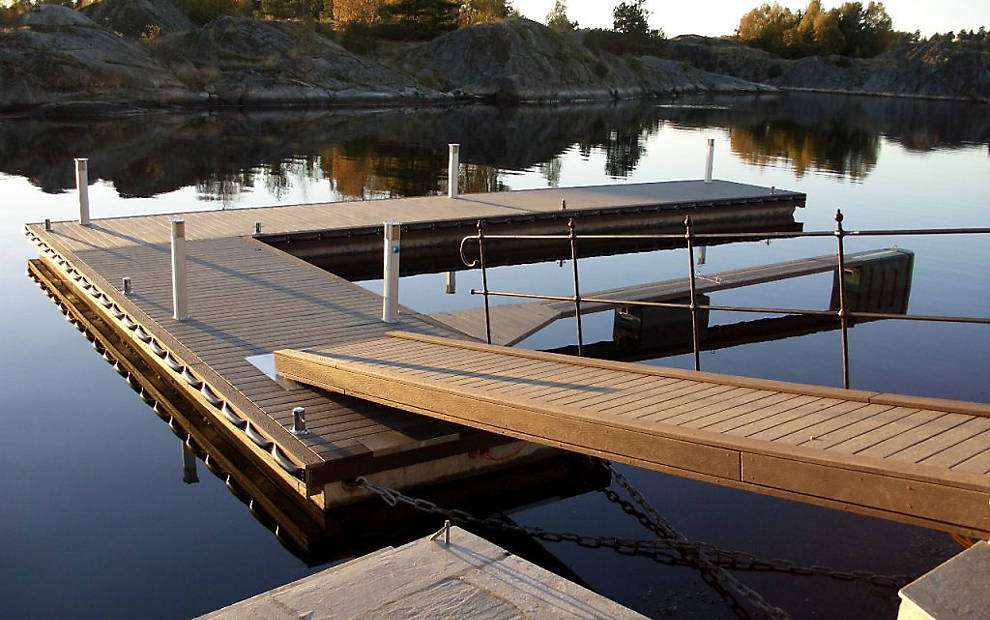Floating Docks: The Suitable Choice for Versatile Water Accessibility
Floating docks existing a compelling remedy for a variety of water accessibility requires, supplying convenience that goes beyond traditional mooring choices. The modular nature of floating docks helps with modification, catering to certain needs.
Advantages of Floating Docks
Floating docks deal countless benefits that improve water gain access to for various applications. Their ability to fall and climb with altering water levels makes them particularly helpful in settings with varying tides or seasonal variations. This flexibility guarantees that vessels can quickly moor without worry for the water's depth, offering a reputable system for entertainment, commercial, and industrial usages.
Furthermore, floating docks are usually built from sturdy products that resist corrosion, making them suitable for lasting usage in marine environments. Their setup is generally less invasive than traditional fixed docks, reducing the ecological influence and promoting quicker release (floating docks). This versatility enables simpler relocation or reconfiguration according to user demands or environmental adjustments
Safety is an additional essential benefit; floating docks can offer steady accessibility for individuals boarding or getting off from boats and decrease the danger of crashes associated with unsteady surfaces. They can be developed to suit a selection of devices, such as fenders and cleats, enhancing functionality. On the whole, floating docks stand for an effective solution for boosting water accessibility across diverse fields while advertising safety and security and environmental sustainability.

Kinds Of Floating Docks
Numerous kinds of floating docks satisfy various needs and settings, each made with particular attributes to maximize functionality. One of the most common types consist of modular docks, which include interlacing sections that permit easy customization and growth. These docks are ideal for recreational usage, as they can be tailored to fit numerous watercraft sizes and water conditions.
One more popular alternative is the fixed floating dock, which stays secured in area but drifts with altering water degrees. floating dock services. This type is particularly fit for locations with marginal tidal fluctuations, supplying secure access for fishing or swimming. Furthermore, there are drive-on docks, which feature a sloped design that allows boats to quickly drive on and off, making them suitable for individual watercraft and smaller sized vessels
For commercial applications, sturdy floating docks are readily available, constructed from strengthened materials to endure significant loads and severe marine atmospheres. Eco-friendly floating docks make use of sustainable materials and layouts to decrease environmental effect, typically incorporating attributes like vegetation to sustain local wildlife. Understanding the different kinds of floating docks guarantees that customers can pick one of the most appropriate service for their particular demands.
Installment Process Review
An effective installation of floating docks calls for cautious planning and attention to detail to ensure optimal performance and safety. The preliminary step includes evaluating the site conditions, including water depth, present, and potential obstacles. This evaluation informs the selection of the ideal dock materials and design tailored to the particular setting.
Following, acquiring essential permits is vital, as lots of jurisdictions have laws pertaining to building and construction on water bodies. When consents are protected, the installment can proceed. Begin by preparing the foundation, which might involve anchoring systems or floating dock builder pilings tailored to the dock type and local problems.
Following the foundation arrangement, put together the dock areas according to manufacturer specifications. Make sure that all parts are securely secured and straightened to withstand environmental anxieties. Placement the dock in the designated area, guaranteeing it is degree and secure.

Upkeep Tips and Finest Practices
After the setup process is total, continuous maintenance plays a vital role in making certain the long life and performance of floating docks. Regular examinations need to be carried out to determine any signs of damages, wear, or degeneration - dock company. Look for any loosened fittings, splits, or splitting up in the dock sections, as these can endanger structural honesty
Cleaning up the dock is vital to get rid of debris, algae, and various other build-up that can influence its appearance and safety and security. Use a mild pressure clean regularly to keep tidiness without causing damages to the surface area. Furthermore, using a protective sealer every few years can assist enhance long life and resist ecological wear.
Pay attention to the mooring lines and anchors, guaranteeing they are safe their explanation and free from Get More Info rust. Change any abject components immediately to stay clear of threats. Seasonal modifications may likewise be needed; during severe weather, enhancing the dock or repositioning can prevent damages.
Applications for Floating Docks
Floating docks serve a wide variety of applications, providing to both recreational and business requirements. In recreational settings, they supply smooth access to waterways for tasks such as boating, angling, and swimming. Their flexible nature allows for installment in varying water degrees, making certain secure and stable access despite tidal changes.
Readily, floating docks are indispensable for marinas and waterfront services. They promote the docking of vessels, making it possible for reliable dumping and filling of items. Their modular layout enables very easy development or reconfiguration to suit altering organization needs, making them excellent for watercraft services, excursion procedures, or fishing charters.
Furthermore, floating docks are utilized in ecological applications such as marine research study and environment reconstruction. They can work as platforms for scientific research studies, keeping track of water quality, or conducting wild animals studies without disturbing sensitive communities.
In commercial contexts, floating docks are utilized in building projects, providing accessibility to hard-to-reach areas for equipment and employees. Their versatility, resilience, and minimal influence on the environment make them an optimal selection for a variety of applications, enhancing both capability and access in different water-based environments.
Verdict
In final thought, floating docks stand for an optimum solution for diverse water access requires, owing to their versatility, resilience, and modular layout. These structures promote secure mooring for different applications while decreasing environmental influence during setup. The minimized maintenance requirements further improve their usefulness. Thus, floating docks offer as a valuable possession for recreational, industrial, and ecological projects, making certain reputable accessibility to waterways and advertising lasting methods in marine environments.
Floating docks existing an engaging remedy for a variety of water gain access to requires, using convenience that goes beyond traditional mooring options.Floating docks offer numerous benefits that improve water gain access to for numerous applications. In general, floating docks represent an effective solution for improving water access throughout varied fields while advertising safety and security and ecological sustainability.
One more prominent option is the stationary floating dock, which stays anchored in area yet drifts with altering water levels.In conclusion, floating docks represent an optimum remedy for varied water accessibility needs, owing to their adaptability, sturdiness, and modular design.